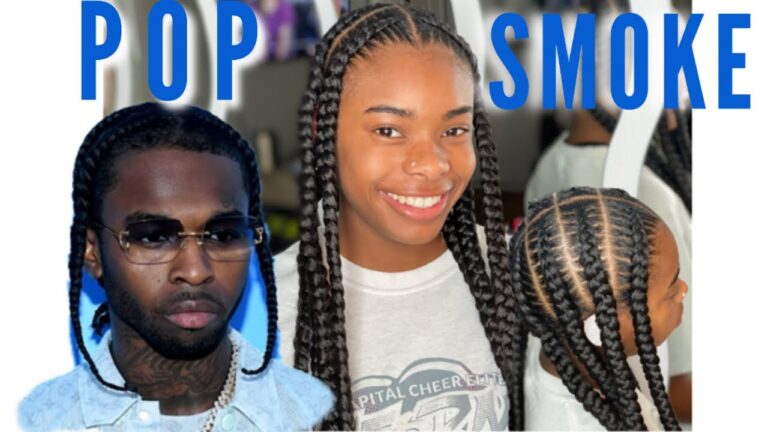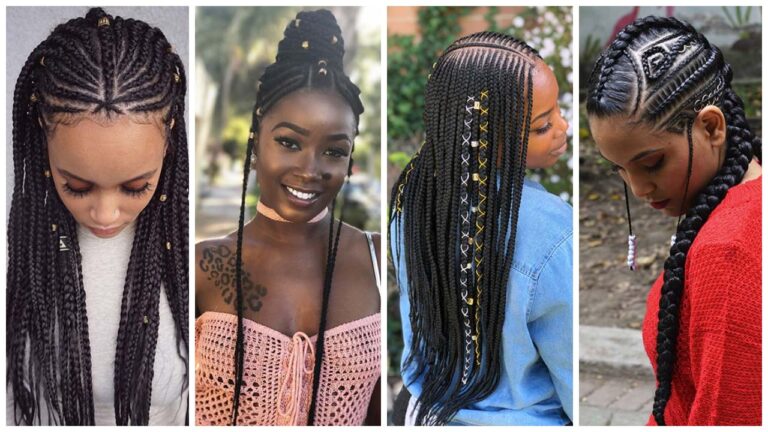What Foods Prevent Hair Loss?
Losing hair can be a distressing experience, and it’s natural to explore ways to prevent hair loss. While there are various factors that contribute to hair health, including genetics and overall health, maintaining a proper diet can play a significant role in promoting hair growth and preventing hair loss naturally.
A hair loss prevention diet should focus on consuming foods that are rich in essential vitamins, minerals, and nutrients. These nutrients help nourish the hair follicles, support the hair growth cycle, and prevent hair loss due to nutritional deficiencies.
Key Takeaways:
- Eating a balanced diet rich in vitamins and minerals can help prevent hair loss naturally.
- Some of the best foods for hair growth include eggs, berries, spinach, and fatty fish.
- Deficiencies in vitamins and minerals, such as B12, D, biotin, and iron, can contribute to hair loss.
- Protein, biotin, antioxidants, and vitamin A are essential for healthy hair growth.
- It’s important to maintain a balanced diet and address underlying factors to promote overall hair health and prevent hair loss.
The Role of Nutritional Deficiency in Hair Loss
When it comes to maintaining healthy hair, nutrition plays a crucial role. Nutritional deficiency can have a significant impact on hair health and can even lead to hair loss. Hair follicles require a variety of vitamins and minerals to function properly, and deficiencies in these nutrients can disrupt the hair growth cycle.
One of the primary causes of hair loss due to poor nutrition is deficiencies in vitamins and minerals. Lack of vitamins B12 and D, biotin, riboflavin, and iron are commonly associated with hair loss. These nutrients are essential for the hair follicle growth cycle and cellular turnover. Without an adequate supply of these nutrients, hair growth can be stunted, leading to noticeable hair loss.
It’s important to maintain a balanced diet to support hair growth and prevent hair loss. By consuming a variety of foods rich in vitamins and minerals, you can provide your body with the necessary nutrients to promote healthy hair. Incorporating foods like eggs, berries, spinach, and fatty fish into your diet can help nourish your hair follicles and prevent nutritional deficiencies that can contribute to hair loss.
The Impact of Nutritional Deficiency on Hair Health
- Deficiencies in vitamins and minerals can disrupt the hair growth cycle
- Vitamins B12 and D, biotin, riboflavin, and iron are commonly associated with hair loss
- A balanced diet rich in essential nutrients can support hair growth and prevent hair loss
Eggs: A Powerful Source of Protein and Biotin
Eggs are an excellent food choice for promoting healthy hair. They are rich in both protein and biotin, two essential nutrients for hair growth and maintenance. Protein is the building block of hair, and a deficiency in protein can lead to weak, brittle hair and even hair loss. Biotin, on the other hand, is necessary for the production of keratin, the protein that makes up the structure of the hair shaft. A lack of biotin can contribute to hair thinning and loss.
Aside from protein and biotin, eggs also provide other hair-healthy nutrients such as zinc and selenium. Zinc helps to regulate the production of oil in the scalp, which can impact the health of the hair follicles. Selenium, on the other hand, is an antioxidant that helps protect the scalp and hair follicles from damage caused by free radicals. Including eggs in your diet can provide these essential nutrients and support healthy hair growth.
The Benefits of Eggs for Hair Health:
- Rich in protein, the building block of hair
- Contains biotin, essential for keratin production
- Provides zinc, which regulates scalp oil production
- Offers selenium, an antioxidant that protects hair follicles

Incorporating eggs into your diet is a simple and delicious way to promote healthy hair. Whether you enjoy them scrambled, boiled, or in baked goods, eggs can provide the necessary nutrients to support hair growth and prevent deficiencies that can lead to hair loss. However, it’s important to note that individual nutritional needs may vary, and it’s always a good idea to consult with a healthcare professional or registered dietitian for personalized dietary recommendations.
Berries: Promoting Hair Growth with Antioxidants and Vitamin C
When it comes to supporting hair growth, berries are a fantastic addition to your diet. These juicy and colorful fruits offer a wealth of benefits for your hair, thanks to their high content of antioxidants and vitamin C.
Antioxidants play a crucial role in maintaining the health of your hair follicles. They help protect these tiny structures from damage caused by harmful free radicals. By incorporating berries into your meals or snacks, you can provide your hair follicles with the necessary support to thrive and promote healthy hair growth.
Vitamin C, another essential component found in berries, is known for its role in collagen production. Collagen is a protein that forms the structural framework of your hair, strengthening it and reducing the risk of breakage. Additionally, vitamin C aids in iron absorption, which is necessary for delivering oxygen to your hair follicles and promoting hair growth.
The benefits of berries for hair growth:
- High in antioxidants that protect hair follicles
- Rich in vitamin C, which promotes collagen production
- Aid in iron absorption for optimal hair growth
Include a handful of berries in your daily diet to give your hair the boost it needs. Whether you enjoy them fresh, frozen, or blended into smoothies, these vibrant fruits can provide the antioxidants and vitamin C your hair follicles crave. By incorporating berries into your hair care routine, you can help support healthy hair growth and achieve luscious locks.
Spinach: Nutrient-Rich Vegetables for Hair Health
When it comes to promoting hair growth and maintaining healthy locks, incorporating nutrient-rich foods into your diet is essential. One such food that you shouldn’t overlook is spinach. Packed with a wide range of essential nutrients, spinach can play a significant role in supporting hair health and preventing hair loss.
One of the key nutrients found in spinach that is beneficial for hair growth is folate. Folate is essential for the production of red blood cells, which carry oxygen and nutrients to the hair follicles. By ensuring an adequate intake of folate, you can support the healthy growth of hair and prevent potential deficiencies that may lead to hair loss.
In addition to folate, spinach is also rich in iron, another important nutrient for hair health. Iron helps in the production of hemoglobin, which carries oxygen to the hair follicles and promotes hair growth. An iron deficiency can impair the normal growth cycle of hair, leading to thinning and shedding. By incorporating spinach into your diet, you can increase your iron intake and maintain healthy hair.

Furthermore, spinach is a great source of vitamin A, which is crucial for maintaining a healthy scalp. Vitamin A promotes the production of sebum, a natural oil that moisturizes the scalp and keeps the hair follicles healthy. By ensuring an adequate intake of vitamin A through foods like spinach, you can support optimal scalp health and contribute to the overall health of your hair.
Whether you prefer to enjoy spinach in salads, smoothies, or cooked dishes, incorporating this nutrient-rich vegetable into your regular diet can be a simple and effective way to support hair health and prevent hair loss.
Fatty Fish: Omega-3 Fatty Acids and More
Fatty fish, such as salmon, herring, and mackerel, are not only delicious but also packed with essential nutrients that promote healthy hair growth. Omega-3 fatty acids, found abundantly in these fish, have been linked to improved hair growth and density. These fatty acids nourish the hair follicles and promote a healthy scalp, creating an ideal environment for hair growth.
In addition to omega-3 fatty acids, fatty fish also provide a rich source of protein, selenium, vitamin D3, and B vitamins. Protein is the building block of hair, helping to strengthen and repair damaged strands. Selenium is important for the health of the scalp, while vitamin D3 deficiency has been associated with hair loss. B vitamins play a vital role in maintaining the overall health and thickness of hair.
Adding fatty fish to your diet can be a nutritious way to support hair growth and prevent hair loss. It is recommended to include fish like salmon, herring, and mackerel in your meals at least twice a week to reap the full benefits. Whether grilled, baked, or pan-seared, fatty fish is a versatile ingredient that can be incorporated into various dishes to enhance both the taste and health of your hair.

The Benefits of Fatty Fish for Hair Health
- Omega-3 fatty acids promote hair growth and density.
- Protein strengthens and repairs damaged hair.
- Selenium supports a healthy scalp.
- Vitamin D3 deficiency can contribute to hair loss.
- B vitamins maintain the overall health and thickness of hair.
“Incorporating fatty fish into your diet can provide the essential nutrients needed for strong and healthy hair.”
The Role of Sweet Potatoes in Hair Health
When it comes to promoting hair health, sweet potatoes are a valuable addition to your diet. These starchy root vegetables are packed with beta-carotene, which converts to vitamin A in the body. Vitamin A plays a crucial role in maintaining healthy hair by affecting sebum production, the oily substance secreted by the scalp that keeps our hair moisturized and nourished.

However, it’s important to strike a balance when it comes to vitamin A intake. While it is essential for healthy hair, excessive consumption can actually lead to hair loss. That’s why incorporating sweet potatoes into a balanced diet is key.
By enjoying sweet potatoes in moderation, you can reap the benefits of their beta-carotene content while avoiding any potential negative effects. Remember, a holistic approach to hair health also includes maintaining a balanced diet that includes other key nutrients, such as protein, biotin, iron, and vitamins. Together, these nutrients work synergistically to support hair growth and prevent hair loss.
Conclusion
After examining the role of nutrition in hair health and exploring specific foods that can prevent hair loss, it is clear that maintaining a healthy diet is essential for promoting strong and vibrant hair. By incorporating foods like eggs, berries, spinach, fatty fish, and sweet potatoes into your diet, you can provide your hair with the vital nutrients it needs to thrive.
However, it’s important to note that a healthy diet is just one aspect of a comprehensive approach to hair care. To effectively prevent hair fall and promote optimal hair health, it’s crucial to address any underlying factors that may contribute to hair loss, such as genetic predisposition, thyroid issues, and hormonal imbalances. Additionally, using appropriate hair care products, like gentle shampoos and conditioners, can further support the overall health of your hair.
In conclusion, a healthy diet that includes nutrient-rich foods is a key element in maintaining strong and beautiful hair. By embracing a holistic approach to hair care that combines a healthy diet, addressing underlying factors, and using suitable hair care products, you can achieve the best results in preventing hair loss and maintaining a healthy and lustrous mane.
FAQ
What foods can prevent hair loss?
Consuming a balanced diet rich in nutrients like vitamin B12, vitamin D, biotin, iron, and others can help promote hair growth and prevent hair loss.
How does nutritional deficiency contribute to hair loss?
Deficiencies in vitamins B12 and D, biotin, riboflavin, iron, and other nutrients are associated with hair loss due to poor nutrition.
Why are eggs beneficial for hair growth?
Eggs are a great source of protein and biotin, which are essential for hair growth. They also provide important minerals like zinc and selenium that contribute to healthy hair.
How do berries support hair growth?
Berries are loaded with antioxidants and vitamins that support hair growth. Antioxidants help protect hair follicles from damage, and vitamin C aids in collagen production, which strengthens hair and helps prevent breakage.
What nutrients in spinach are beneficial for hair health?
Spinach is rich in folate, iron, and vitamins A and C, which are important for promoting healthy hair growth and preventing hair loss.
How do fatty fish promote hair growth?
Fatty fish like salmon, herring, and mackerel are packed with omega-3 fatty acids, which have been linked to improved hair growth and density. They also provide protein, selenium, vitamin D3, and B vitamins that contribute to strong and healthy hair.
How does vitamin A in sweet potatoes affect hair health?
Sweet potatoes contain beta-carotene, which converts to vitamin A in the body. Vitamin A is essential for hair health as it affects sebum production, which keeps the hair moisturized and healthy.
What can I do besides diet to prevent hair loss?
In addition to maintaining a healthy diet, using appropriate hair care products and addressing underlying factors like genetic predisposition, thyroid issues, and hormonal imbalance can also contribute to overall hair health and prevention of hair loss.







